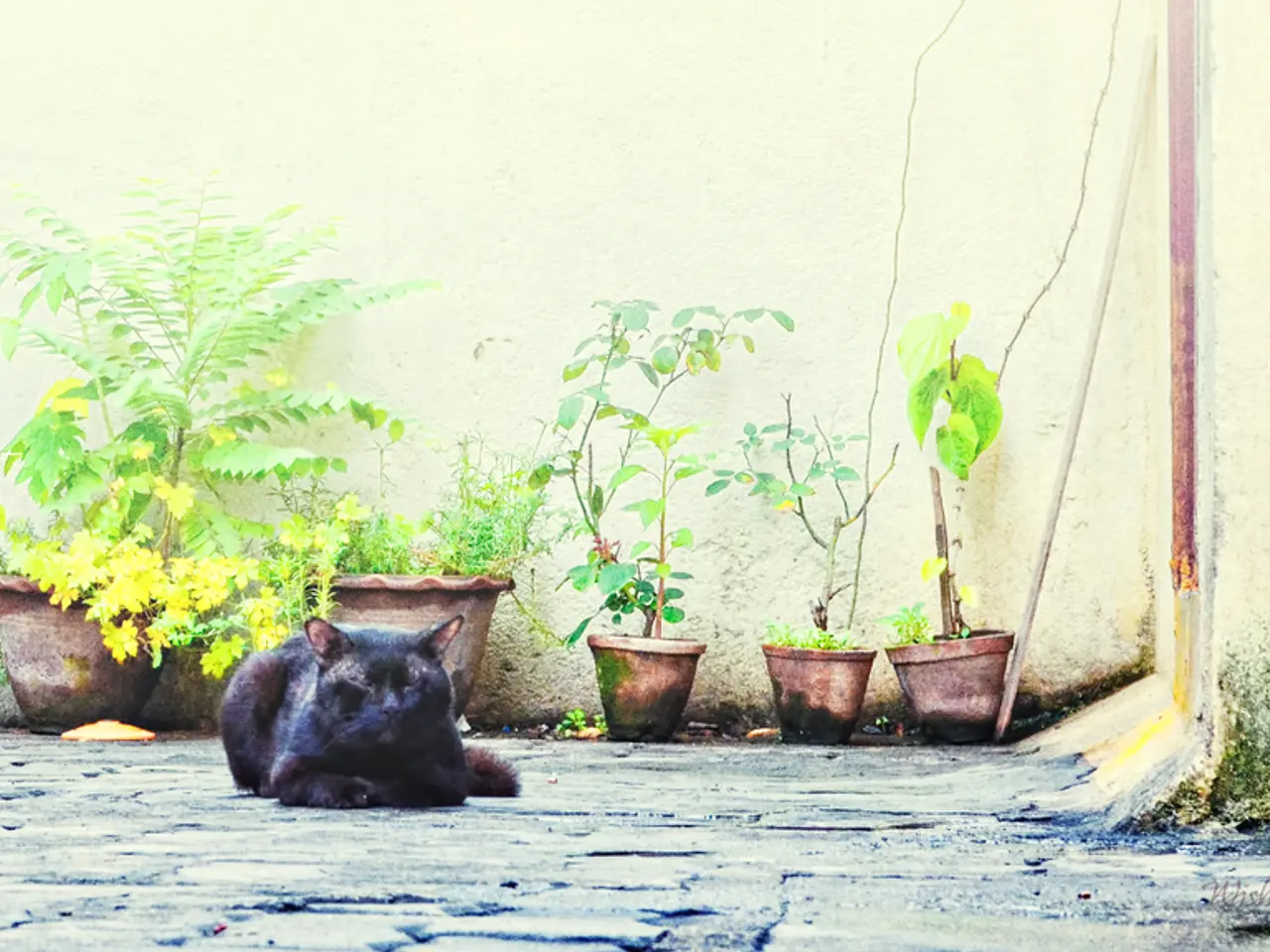Consuming grapes and raisins is harmful for cats, it's best to avoid feeding them these fruits.
In the world of feline nutrition, it's essential to be aware of certain foods that could pose a threat to our furry friends. One such food is grapes and raisins, which can be harmful to cats.
Cats, as obligate carnivores, thrive on a meat-based diet. However, their digestive systems are not designed to process many human foods, including dairy products, white chocolate, and, importantly, grapes and raisins.
Consumption of these fruits can lead to a medical emergency. Cats may exhibit signs such as vomiting, diarrhea, weakness, lethargy, abdominal pain, and changes in urination. These symptoms could progress to acute kidney failure, a potentially fatal condition if left untreated.
The exact toxic compounds in grapes and raisins that cause this damage are not yet fully understood. However, research suggests that tartaric acid or related substances may be the culprits. The mechanism by which these compounds affect cats' kidneys is still not clear.
Given the potential risks, it's crucial to take immediate action if your cat has ingested grapes or raisins. Veterinarians may induce vomiting, administer IV fluids, and monitor kidney function. It's important to note that attempting to treat a cat without professional guidance can be dangerous.
To prevent such incidents, it's best to keep grapes and raisins out of reach for cats. They don't naturally crave these fruits, so it's not a concern for them to miss out. When it comes to treats, opt for foods designed specifically for cats, such as freeze-dried chicken, commercial cat treats, or vet-approved snacks.
While more research is needed to fully understand the toxicity of grapes and raisins in cats, the current evidence is clear: any amount ingested by cats should prompt immediate veterinary consultation due to the potential for serious renal impairment.
In conclusion, while the precise chemical culprits and detailed pathogenesis in cats have not been conclusively identified, tartaric acid is the prime suspected toxin, and kidney failure is the primary risk from ingestion of grapes or raisins. By being aware of this danger and taking preventative measures, we can help ensure our feline friends stay healthy and happy.
References:
- Veterinary Clinics of North America: Small Animal Practice
- Journal of Veterinary Internal Medicine
- Cornell University College of Veterinary Medicine
- American Society for the Prevention of Cruelty to Animals
- Pet Poison Helpline
- In the realm of pet health-and-wellness, avoiding certain human foods like grapes and raisins is essential for the wellbeing of cats, as their digestive systems are ill-equipped to process these.
- The consumption of these fruits can lead to therapies-and-treatments like hospitalization and kidney function monitoring, as they potentially cause acute kidney failure, a life-threatening condition.
- To maintain a healthy lifestyle for cats, it's wise to opt for pet-specific treats and foods, such as freeze-dried chicken or commercial cat treats, to prevent exposure to harmful substances like those found in grapes and raisins.




